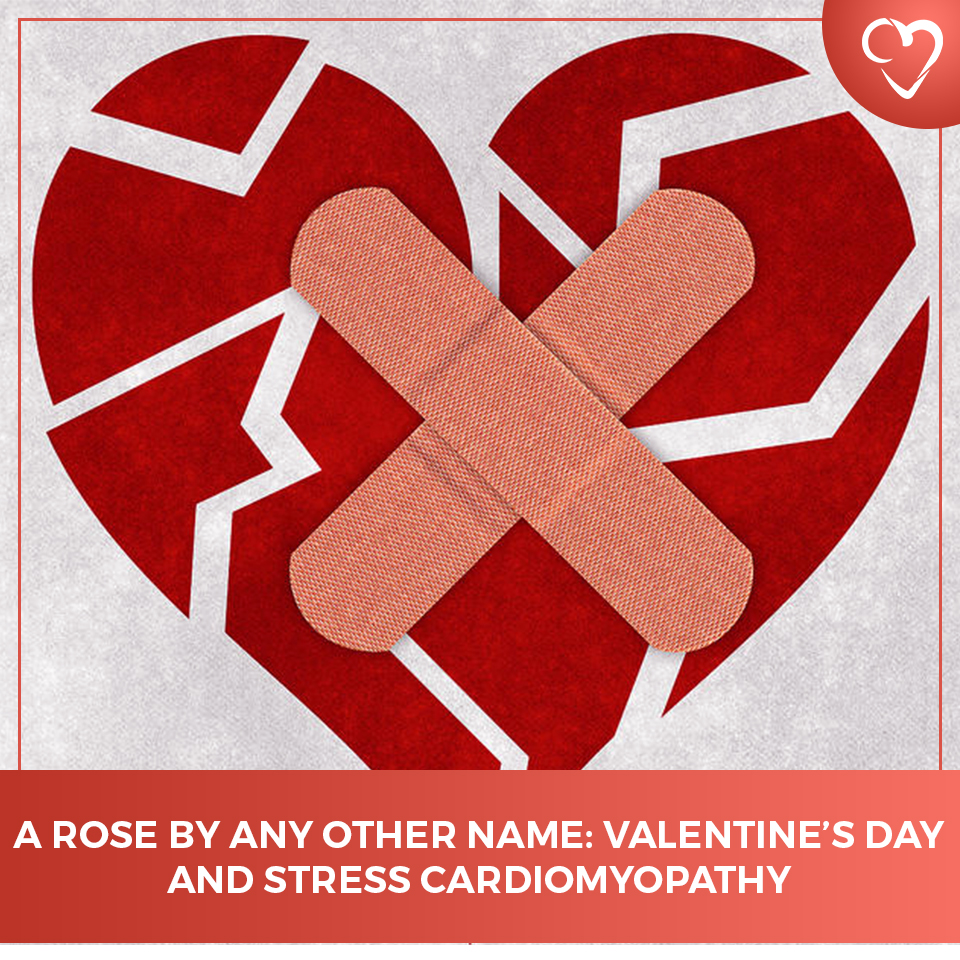
Valentine’s Day is on the horizon and along with the spikes in people’s blood glucose levels, the medical community will likely also see a spike in patients asking about acute stress cardiomyopathy, though they won’t use that term. Known in popular media as “broken heart syndrome,” that phrase is a misnomer. Stress cardiomyopathy is not necessarily brought on by romantic heart break so much as an especially stressful event like getting mugged or the sudden death of a loved one. Acute stress cardiomyopathy is also sometimes called Takatsubo cardiomyopathy or left ventricular apical ballooning syndrome, but whatever name is used, it’s a sudden heart muscle weakness. Acute stress cardiomyopathy has similarities to myocardial infarction because patients present with similar symptoms. These may include angina, shortness of breath, low blood pressure, and in some cases, cardiogenic shock. The patient themselves may think they’re suffering a myocardial infarction. Often causes of stress cardiomyopathy are grief at the loss of a loved one, fear and trauma, or even work stress as well serious physical illness or surgery. While experiencing it is certainly painful, recovery is rapid — generally one to two months — and it leaves no permanent damage. That, of course, doesn’t mean that patients should ignore acute stress cardiomyopathy, as it can include congestive heart failure and atrial fibrillation or other rhythm abnormalities. Ninety percent of patients presenting with acute stress cardiomyopathy are postmenopausal women, though researchers aren’t sure why it disproportionately affects older women. Those with previous history of mental illness (including anxiety or depression) are also at higher risk of it. Regardless of the cause, let patients know it isn’t just in their heads: mental well being affects heart health.